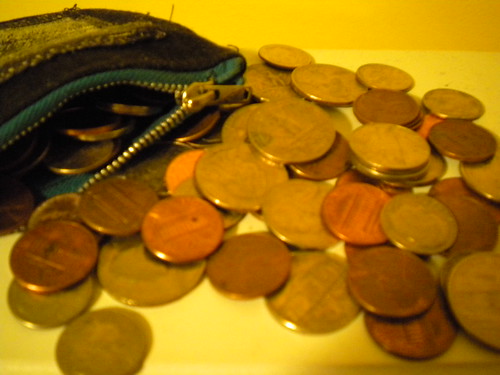It's never too early or too late to start saving. However, if you find yourself in debt (especially a great amount of debt) it's more important to pay down your debt to avoid the ecu-ring of further interest. If you aren't in debt, and you haven't started saving, there's no better time to start than today!
The sooner you start saving, the longer your money has time to grow. Those of you in your twenties and thirties that are not-yet raising families are in an excellent position to start saving aggressively now.
For example, if you start saving $3,000 per year (that's $250 per month) at the age of 25, and your investment sees a return of 8%, then by the time you're 65 you'd have $839,343! If you waited until 35 to start saving the same amount of money at the same rates you'd have only $367,038. Something of a difference isn't it?
Some thoughts on getting started: if you've never been much of a saver, starting can be difficult to do and may seem impossible. It's not! --Well it's not impossible to start at least. Here are three ways to start saving!
- Clean out your wallet, handbag, satchel or wherever your lose money tends to gather, --if it tends to gather anywhere. Then, take all the change and free floating single bills. Put them aside in a coffee can, jar, antique vase, cute ceramic piggy bank, new savings account, --wherever you have to put it so that you put it away for a rainy day. Unless you're real hard-up for those green backs, you won't miss the coins, be they copper or silver. It's a slow way to save, but it's a way to start and it will grow over time! Especially, if you know, you put it in a bank account or retirement fund where it can gain some interest.

Pennies by themselves are still pretty worthless, but pennies in a pile sometimes amount to something!
- Again, unless you desperately need it to pay a debt or an upcoming bill, save some of every windfall, no matter how small or great the amount. You needn't feel as though you can't go out and celebrate that raise or bonus or scratch-n-win ticket for $500 --but instead of blowing every penny from heaven on a big dinner or fancy toy, pay yourself first. Consider doing it a little differently when you do go out to celebrate a gain. Drinks and hors d'œuvres are usually cheaper than a dinner without drinks, especially if you're splitting those hors d'œuvres plates with a few friends.
- If you have a habit that's born purely of pleasure, consider giving it up for a little while or scaling back on it for a bit and saving the money you would have spent. Let's say you're in the habit of going out to lunch everyday during the working week. If lunch costs you $10 a day, that's $50 a week or $200 a month you might be spending. Even if you only cut down to where you're still eating out twice per week, that's only $20 a week or $80 per month. There is, of course, the possibility that your grocery bill will increase somewhat so that you have food to bring for lunch. Still, groceries are often dramatically cheaper than eating out. Check out this guy who challenged himself to eat well on $1 per day!
Depending on your individual situation or life-style, these suggestions may not work for everyone. Still, they may inspire you to something that will allow you to save a little here and there. It isn't important that you save a lot right away, the important thing is starting, and then continuing to save with some regularity, even if it's just a little here and there. Don't get overwhelmed, when you start from nothing saving anything, much less hundreds of thousands of dollars seems terrifying! It can be tough, but the important thing is to keep at it. Setting a specific goal, or thinking of something concrete (a house, an education, a vacation, the Batmobile) that you want to save for, can help. Remember, isn't delayed gratification the definition of maturity? ISN'T IT?
No comments:
Post a Comment